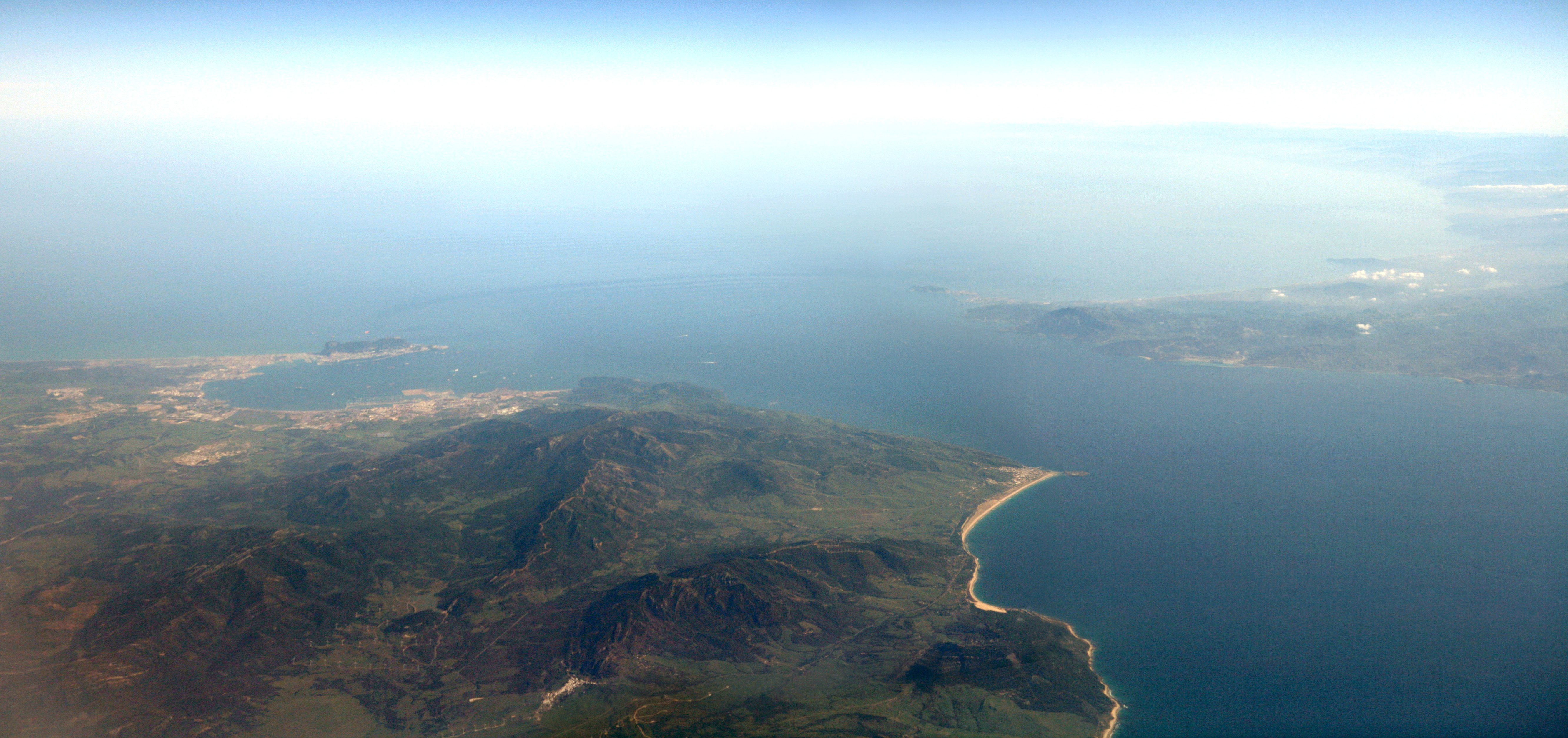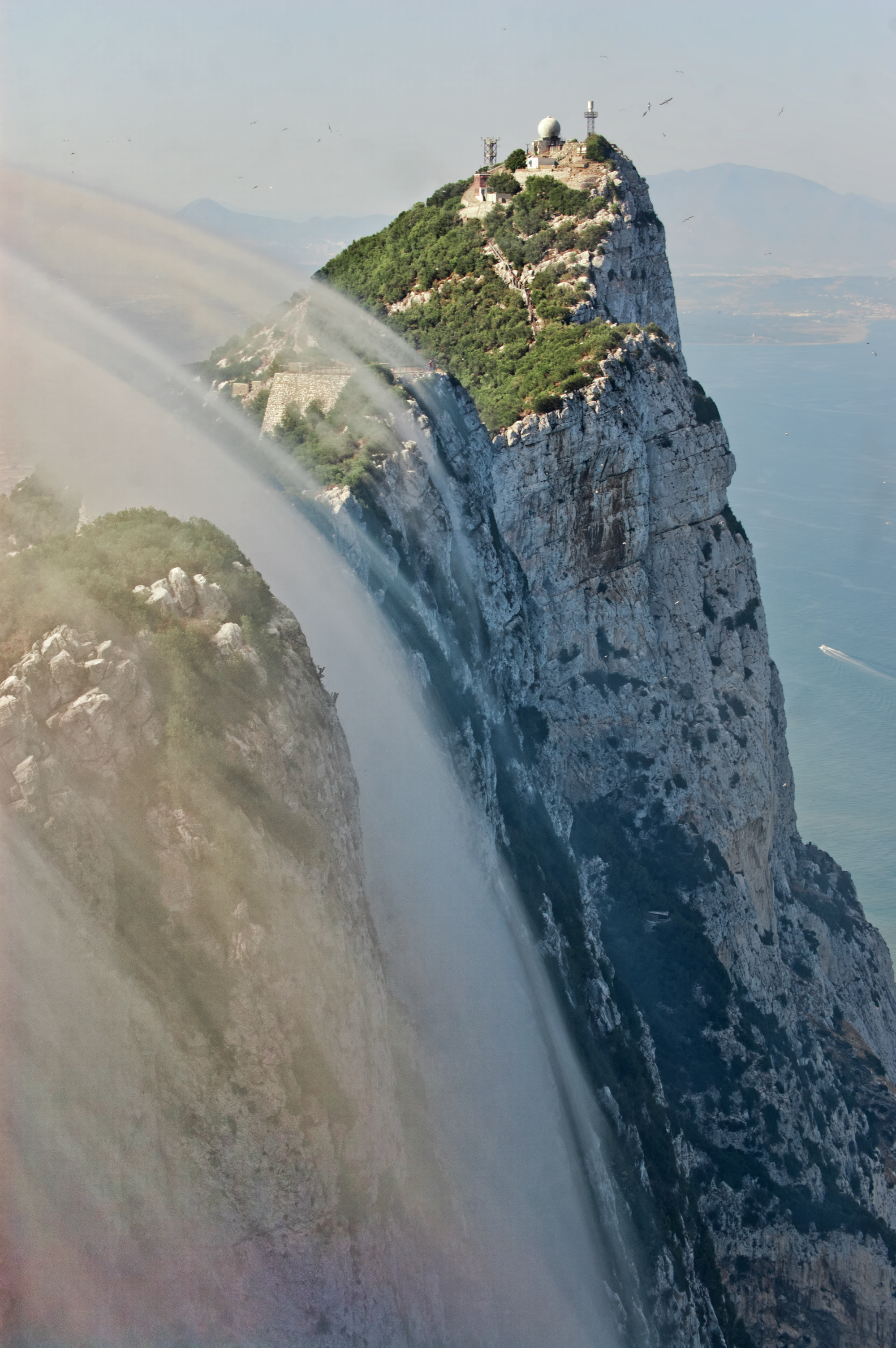|
Vendavel
The Vendavel (alternate spellings include Vendevale and Vendaval) is a westerly wind that blows into the Mediterranean Sea around the area of the Straits of Gibraltar and Morocco. This is generally associated with travelling depressions entering the Mediterranean from the west. See also * Viento de Levante * Sirocco Sirocco ( ), scirocco, or, rarely, siroc (see below) is a Mediterranean wind that comes from the Sahara and can reach hurricane speeds in North Africa and Southern Europe, especially during the summer season. Names ''Sirocco'' derives from ... References Winds {{wind-stub ... [...More Info...] [...Related Items...] OR: [Wikipedia] [Google] [Baidu] |
Straits Of Gibraltar
The Strait of Gibraltar ( ar, مضيق جبل طارق, Maḍīq Jabal Ṭāriq; es, Estrecho de Gibraltar, Archaic: Pillars of Hercules), also known as the Straits of Gibraltar, is a narrow strait that connects the Atlantic Ocean to the Mediterranean Sea and separates the Iberian Peninsula in Europe from Morocco in Africa. The two continents are separated by of ocean at the Strait's narrowest point between Point Marroquí in Spain and Point Cires in Morocco. Ferries cross between the two continents every day in as little as 35 minutes. The Strait's depth ranges between which possibly interacted with the lower mean sea level of the last major glaciation 20,000 years ago when the level of the sea is believed to have been lower by . The strait lies in the territorial waters of Morocco, Spain, and the British overseas territory of Gibraltar. Under the United Nations Convention on the Law of the Sea, foreign vessels and aircraft have the freedom of navigation and overflight to ... [...More Info...] [...Related Items...] OR: [Wikipedia] [Google] [Baidu] |
Wind
Wind is the natural movement of air or other gases relative to a planet's surface. Winds occur on a range of scales, from thunderstorm flows lasting tens of minutes, to local breezes generated by heating of land surfaces and lasting a few hours, to global winds resulting from the difference in absorption of solar energy between the climate zones on Earth. The two main causes of large-scale atmospheric circulation are the differential heating between the equator and the poles, and the rotation of the planet (Coriolis effect). Within the tropics and subtropics, thermal low circulations over terrain and high plateaus can drive monsoon circulations. In coastal areas the sea breeze/land breeze cycle can define local winds; in areas that have variable terrain, mountain and valley breezes can prevail. Winds are commonly classified by their spatial scale, their speed and direction, the forces that cause them, the regions in which they occur, and their effect. Winds have various asp ... [...More Info...] [...Related Items...] OR: [Wikipedia] [Google] [Baidu] |
Mediterranean Sea
The Mediterranean Sea is a sea connected to the Atlantic Ocean, surrounded by the Mediterranean Basin and almost completely enclosed by land: on the north by Western and Southern Europe and Anatolia, on the south by North Africa, and on the east by the Levant. The Sea has played a central role in the history of Western civilization. Geological evidence indicates that around 5.9 million years ago, the Mediterranean was cut off from the Atlantic and was partly or completely desiccated over a period of some 600,000 years during the Messinian salinity crisis before being refilled by the Zanclean flood about 5.3 million years ago. The Mediterranean Sea covers an area of about , representing 0.7% of the global ocean surface, but its connection to the Atlantic via the Strait of Gibraltar—the narrow strait that connects the Atlantic Ocean to the Mediterranean Sea and separates the Iberian Peninsula in Europe from Morocco in Africa—is only wide. The Mediterranean Sea e ... [...More Info...] [...Related Items...] OR: [Wikipedia] [Google] [Baidu] |
Morocco
Morocco (),, ) officially the Kingdom of Morocco, is the westernmost country in the Maghreb region of North Africa. It overlooks the Mediterranean Sea to the north and the Atlantic Ocean to the west, and has land borders with Algeria to the east, and the disputed territory of Western Sahara to the south. Mauritania lies to the south of Western Sahara. Morocco also claims the Spanish exclaves of Ceuta, Melilla and Peñón de Vélez de la Gomera, and several small Spanish-controlled islands off its coast. It spans an area of or , with a population of roughly 37 million. Its official and predominant religion is Islam, and the official languages are Arabic and Berber; the Moroccan dialect of Arabic and French are also widely spoken. Moroccan identity and culture is a mix of Arab, Berber, and European cultures. Its capital is Rabat, while its largest city is Casablanca. In a region inhabited since the Paleolithic Era over 300,000 years ago, the first Moroccan s ... [...More Info...] [...Related Items...] OR: [Wikipedia] [Google] [Baidu] |
Depression (meteorology)
In meteorology, a low-pressure area, low area or low is a region where the atmospheric pressure is lower than that of surrounding locations. Low-pressure areas are commonly associated with inclement weather (such as cloudy, windy, with possible rain or storms), while high-pressure areas are associated with lighter winds and clear skies. Winds circle anti-clockwise around lows in the northern hemisphere, and clockwise in the southern hemisphere, due to opposing Coriolis forces. Low-pressure systems form under areas of wind divergence that occur in the upper levels of the atmosphere (aloft). The formation process of a low-pressure area is known as cyclogenesis. In meteorology, atmospheric divergence aloft occurs in two kinds of places: * The first is in the area on the east side of upper troughs, which form half of a Rossby wave within the Westerlies (a trough with large wavelength that extends through the troposphere). * A second is an area where wind divergence aloft occurs ... [...More Info...] [...Related Items...] OR: [Wikipedia] [Google] [Baidu] |
Viento De Levante
The levant ( ca, Llevant, it, Levante, mt, Lvant, el, Λεβάντες, es, Levante) is an easterly wind that blows in the western Mediterranean Sea and southern France, an example of mountain-gap wind. In Roussillon it is called "llevant" and in Corsica "levante". In the western Mediterranean, particularly when the wind blows through the Strait of Gibraltar, it is called the Viento de Levante or the Levanter. It is also known as the Solano. When blowing moderately or strongly, the levant causes heavy swells on the Mediterranean. Usually gentle and damp, the levant frequently brings clouds and rain. When it brings good weather, it is known as the "''levant blanc''",Meteo-France website (in French) on "Vents regionaux and vents locaux" or "''levante calma''" in Gibraltar. The origin of the name is the same as the origin of the Levant, the region of the eastern Mediterranean: it is the Latin word "levante", the participle of levare "to raise" – as in sol levante "risi ... [...More Info...] [...Related Items...] OR: [Wikipedia] [Google] [Baidu] |
Sirocco
Sirocco ( ), scirocco, or, rarely, siroc (see below) is a Mediterranean wind that comes from the Sahara and can reach hurricane speeds in North Africa and Southern Europe, especially during the summer season. Names ''Sirocco'' derives from '' šurūq'' (), verbal noun of '' šaraqa'', related to the East, ''aš-šarq''. Various names for this wind in other languages include: * it, scirocco * scn, sciroccu * es, siroco * ca, xaloc * mt, xlokk * oc, siròc or * el, σορόκος, sorókos, or romanized: sirókos * sq, Jugu (south) * hr, jugo, lit=southern, or rarely ''širok'' * lij, sciöco or * Libyan Arabic: , romanized: , which means 'coming from the Qibla' * arz, خمسين, Ḫamsīn, which means 'fifty' ('fifty-day wind') * aeb, شلوق, šlūq, probably from with the same meaning as ; or * ary, شرقي, lit=eastern, šarquiyy, pronounced širguī Development Siroccos arise from warm, dry, tropical air masses that are pulled northward by low- ... [...More Info...] [...Related Items...] OR: [Wikipedia] [Google] [Baidu] |





